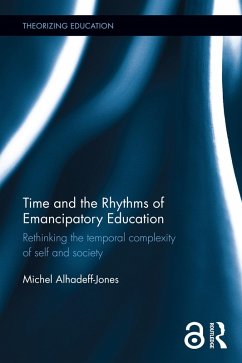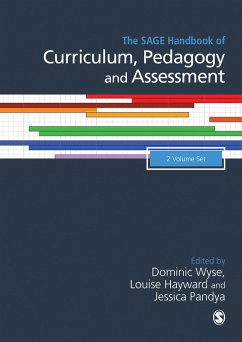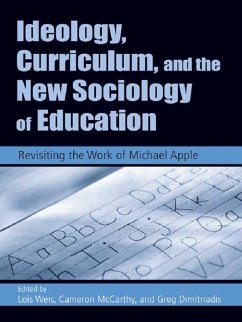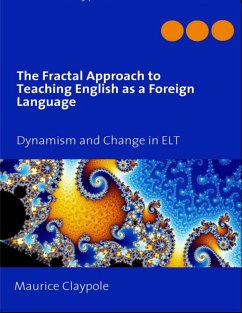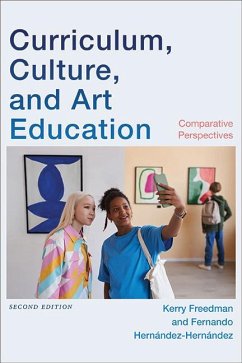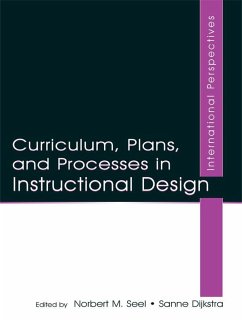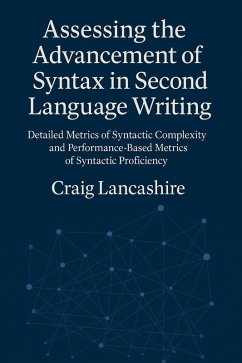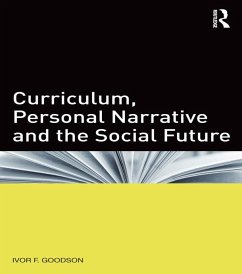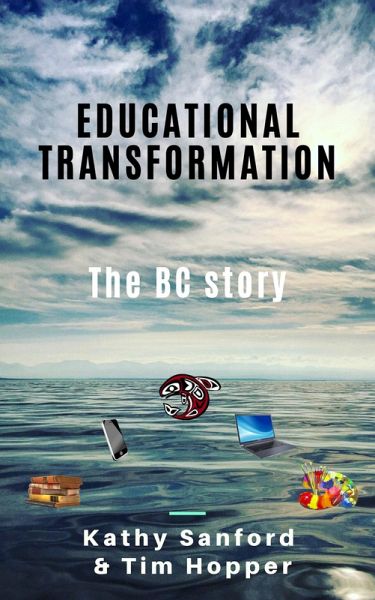
Educational Transformation: The BC Story (BC Redesigned Curriculum, #1) (eBook, ePUB)

PAYBACK Punkte
0 °P sammeln!
How do we prepare students for the twenty-first century who will be alive in the twenty-second? British Columbia (BC) currently has one of the highest performing education systems, as measured by Organization for Economic Co-operation and Development (OECD). Through their Programme for International Student Assessment (PISA), students from BC score high in a range of measures; first in reading. However, educational leaders in BC have known, through Ministry of Education surveys and tracking of examination results, that there are recurring low graduation rates for particular populations (such a...
How do we prepare students for the twenty-first century who will be alive in the twenty-second? British Columbia (BC) currently has one of the highest performing education systems, as measured by Organization for Economic Co-operation and Development (OECD). Through their Programme for International Student Assessment (PISA), students from BC score high in a range of measures; first in reading. However, educational leaders in BC have known, through Ministry of Education surveys and tracking of examination results, that there are recurring low graduation rates for particular populations (such as Indigenous, rural and low socio-economic), there is a lack of engagement of youth in general, and growing needs of special populations. As Jan Unwin, former BC Ministry Superintendent of Graduation and Student Transitions stated, "Too many kids sleepwalk their way through high school even though we count them as a success." The story of BC's complex educational transformation, recounted here in volume 1, interweaves many characters and compelling stories into an important 21st century narrative of educational transformation.
This 100 page story describes the development of an educational system that values students' interests and talents, builds a competency-based framework to assess students' successes over time, and provides teachers with the flexibility in curriculum design to address current world, real-life problems with their students.
Key to the success of this transformation has been the interconnectedness of political leaders with the educators, school and district administrators and teachers, all bringing strengths to reshape the curriculum for more innovative educational practices and thinking. The characters' voices appear and reappear as the story unfolds, captured over a two year period by Drs. Sanford and Hopper in extensive interviews with key educational leaders including government ministers and their staff, school district superintendents and teachers' union leaders.
Transformation happens when we work collectively, across institutions, locations, and contexts. The success of this transformation is due to the collective work of many educators. Over time this book recounts the foundation story for a radical shift in education. It sets the scene for inspiring stories of meaningful learning that are now emerging across BC that will be explored in volume 2. Educational leaders from around the world are looking at BC to see how this educational transformation will evolve. We believe it can be a promising model for school-based education in the twenty-first century.
This 100 page story describes the development of an educational system that values students' interests and talents, builds a competency-based framework to assess students' successes over time, and provides teachers with the flexibility in curriculum design to address current world, real-life problems with their students.
Key to the success of this transformation has been the interconnectedness of political leaders with the educators, school and district administrators and teachers, all bringing strengths to reshape the curriculum for more innovative educational practices and thinking. The characters' voices appear and reappear as the story unfolds, captured over a two year period by Drs. Sanford and Hopper in extensive interviews with key educational leaders including government ministers and their staff, school district superintendents and teachers' union leaders.
Transformation happens when we work collectively, across institutions, locations, and contexts. The success of this transformation is due to the collective work of many educators. Over time this book recounts the foundation story for a radical shift in education. It sets the scene for inspiring stories of meaningful learning that are now emerging across BC that will be explored in volume 2. Educational leaders from around the world are looking at BC to see how this educational transformation will evolve. We believe it can be a promising model for school-based education in the twenty-first century.
Dieser Download kann aus rechtlichen Gründen nur mit Rechnungsadresse in A, B, CY, CZ, D, DK, EW, E, FIN, F, GR, H, IRL, I, LT, L, LR, M, NL, PL, P, R, S, SLO, SK ausgeliefert werden.





